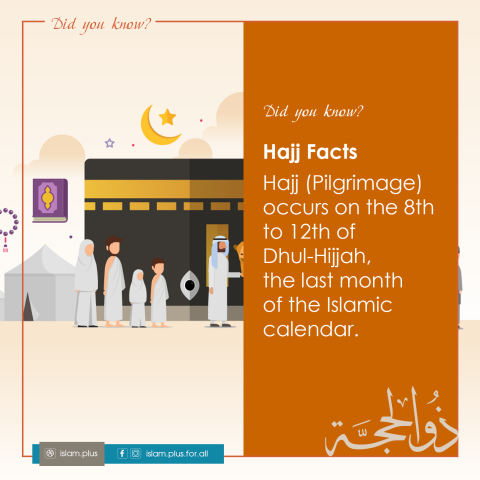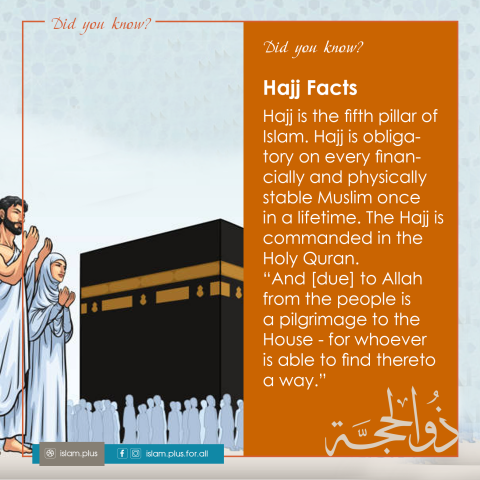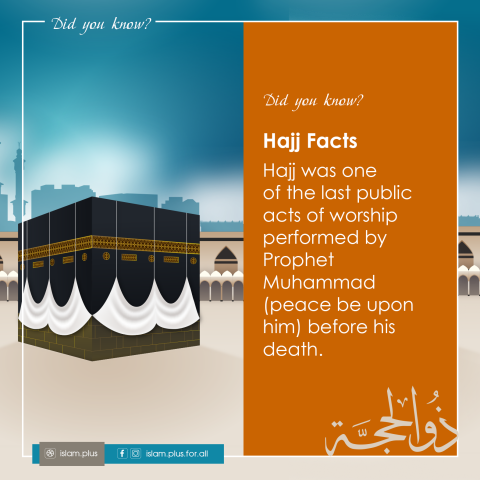
While the Kremlin’s troops are trying to occupy neighbouring Ukraine, this large European country has once again become the focus of attention.
What few people in Europe are aware of is a tradition-rich Muslim community that has been part of the Ukrainian society since centuries. It too is affected by Russian aggression; not just today, but already since the annexation of Crimea and the secession of the Donbas in 2014.
Islamische Zeitung spoke to Dr Mykhaylo Yakubovych about the Muslims and the war in his home country. The Ukrainian Islamic scholar is also a translator of the Qur’an into his mother tongue. He currently works at the University of Freiburg, Germany.
Islamische Zeitung: Many Muslims in Germany and Europe are not aware that Ukraine has its own traditional Muslim community. Could you give us an overview about it and its structure?
Mykhaylo Yakubovych: Yes, Islam entered the territory of present-day Ukraine already in 9th-10th centuries. Those were local Alanian tribes, partially becoming Muslims, as well as merchants from the Middle East travelling to Kyiv and other parts of Ruthenia (Rus). Starting from the 13th century onwards, most of Muslim life has been concentrated in Crimea. Both the Golden Horde and Crimean Khanate made Islamic culture deeply enrooted into the local religious landscape. It could be said that, that at least half of present-day Ukraine was a part of the Muslim world between the 14th and 18th century, with its mosques, scholars, medreses and other religious heritage.
Many Muslims also lived in the West of Ukraine, usually described as Polish Tatars, a group closely related to Crimean Tatar. Muslims suffered heavy losses in 1944, because of Stalin’s deportation of Crimean Tatars, and only the independence of Ukraine was a condition for Muslims to start their return and being able to prosper. Up to 2022, the number of Muslims in Ukraine was between 500,000 and 1,000,000. This included Crimean Tatars (mostly living under Russian occupations), Arabs, Azerbaijanians and other nationalities, including thousands of converts from Ukrainian origin.
Islamische Zeitung: Seen from the outside, it seems that the Ukrainian Muslims had previously pretty good relations with the wider society. Is this true and what are the Ukrainian peculiarities?
Mykhaylo Yakubovych: Definitely. Ukraine had a very low level of Islamophobia; no hijab bans or something comparable. Even those Muslims coming from other countries were enjoying much of religious freedom. Hundreds of mosques were built, literature printed, religious schools opened, business owned, all this infrastructure has been closely tied to civil society. Many Muslim leaders of Ukrainian and Crimean Tatar origin supported the pro-European course of the country. They were voting at all kinds of elections, as well as elected to the Ukrainian parliament. Especially in 2000s, Ukraine became a place for many refugees, welcomed by religious freedom.
After 2014, when Russia occupied Crimea and imprisoned hundreds of innocent Muslims as “extremists”, many Ukrainians expressed their solidarity with the Crimean Tatars and other Muslims facing pressure from any kinds of dictatorship. The same could be said of interreligious dialogue. In contrast to Russia or Central Asia, Ukraine had almost no literature bans, and the government never interrupted internal processes in Muslim societies. Once again, differing from Russia or other states in the region where Muslims are controlled by state-supported Muftis and special hierarchies, a few major and minor Muslim organizations in Ukraine had their own authorities. This is more of a Western European model of relations between Islam and State, than the “Eastern European” one. Now, all of them are facing the biggest challenge after the end of the Soviet Union.
Islamische Zeitung: Ukrainian Muslims were hard hit by the annexation of Crimea and the secession of parts of the Donbas through Russian action. How have they been affected by what was happening in 2014 and later?
Mykhaylo Yakubovych: Since almost half of the Ukrainian Muslim community lived in Crimea and Donbass until 2014, those Muslims were tremendously suffering from all those losses. Apart from the military actions, mainly in Donbass, Russia started its typical religious politics in the occupied lands: that is, creation of “official” Muslim religious institutions and creating pressure on all others. Based on Crimean Tatar Religious Administration, they made such a foundation, which willingly or unwillingly supported the Kremlin’s politics. Other religious groups had to leave peninsula, some of them were imprisoned. Those were people belonging to Tablighi Jamaat community and Salafi organizations. Many were accused of being members of the Hizb-ul-Tahrir party. Many Muslims also went to the Ukrainian army to fight against the aggression.
Islamische Zeitung: Now, after the attack on 24 February on the whole Ukraine, how is the situation of her Muslims and their different communities?
Mykhaylo Yakubovych: This is a completely new kind of challenge, and now the main question is if Ukraine will survive as a country or not.
Firstly, parts of the Muslims were prepared, already being members of local defense units. Major sections of the Muslim population remain in the biggest cities and are trying up to now to escape from Kharkiv, Kyiv and other cities leaving for Poland or other EU states. Of course, major Muslim organizations (even those apolitical like Salafi communities) support the Ukrainian fight for freedom. Thusly, we have several Muslims in the Ukrainian armed forces.
Secondly, what should be added, is a problem with foreign students of Muslim origins, those who are studying in Ukraine and come for example from Arab countries. Their governments were not taking good care of them, so in the first few days all those Muslims were filling trains and buses to escape. Some of the Arabic minority leaders (already citizens of Ukraine) remain in Kyiv, Kharkiv and Lviv, and are courageously providing humanitarian aid. There are already dozens of Muslims killed by Russian airstrikes, including few Arab students.
Islamische Zeitung: There has been video footage of Muslims fighting in the Ukrainian army for example on Twitter. What is their contribution in the current situation? Are here cooperations with other religious communities in terms of civil society?
Mykhaylo Yakubovych: Ukraine experiences a rise of civil resistance as well: this is one of the first full-scale country-against-country wars in contemporary European history. Of course, Muslims are not standing outside: almost all the religious leaders (muftis of main Islamic organizations) remain in Kyiv and facing danger of encircling. Some of them are active in humanitarian aid, some joined local defense units.
Almost everyone understands, that losing Ukrainian independence will be equal to the destruction of Islamic life within the country. Image those people of different origins, different nationalities living in peace for many years, while someone comes and says: you are “Nazi” and must be “eliminated.” Now this is not the question of changing the banner under some land, this is the only possible answer to an explicit crime. Now, we have a situation where Muslims, Jews and Christians stand in the line fighting for survival.
Islamische Zeitung: Globally, there were some Muslim “critics” (especially in Western countries) comparing the present war with previous intervention by Western states. Some try to downplay the scope and effect of this war in relation to those wars. What would you answer to this claim?
Mykhaylo Yakubovych: Yes, especially there are many voices from the Middle East and other places that Russian aggression is the same as American against Iraq. First, if coming to the year of 2003, no one in the Muslim community (and, in large, civil society) was supporting this war. Moreover, Ukrainians were the first to condemn Russian presence in Syria and Libya. The question is: why didn’t the world, especially the Muslims, stopped Putin in Syria? When Ukrainians captured a Russian pilot who (and this is proved) was bombing Syria in the past, the first reaction was solidarity. Ukrainian Muslims stand in solidarity, while many Middle Eastern are not.
Nevertheless, it would be naive to wait for another reaction: Muslims are not even united by belief and in their position “on site” (meaning Middle East or North Africa) region. So why should one expect political unity here? Maybe this sounds too drastic, but a “Global Ummah“ – especially in the hand of different manipulators – remains not more than a myth. Do Muslims believe that an anti-Westernism by some ideologies, pretending to be Muslim, really works?
Islamische Zeitung: There is an ongoing trend in Russian (Czarist, Soviet and present-day) policy of extending its influence and enlarge its territories. Especially those parts of the past Muslim settlement around the Black See were hard hit by Russian expansionism. Do you see a continuation with past policies?
Mykhaylo Yakubovych: Russia governs Muslim communities according to a single pattern: creation of state-supported religious administrations (supporting everything Kremlin do, including war), while any independent or oppositional Muslim communities are persecuted as “extremists.” In case of Ukraine, we see a very tragic history: the more Russian forces are in the Black Sea area, the less Muslims live in those lands. In some way, Russia was incorporating the South of Ukraine in the 18th and 19th century under the banners of resisting Ottoman influence. Thusly, after the war in Ukraine everyone in this area will be in danger. All the red lines are crossed, decisions have been made, and the future is dark, when the aggression is not stopped.
Islamische Zeitung: What can Muslims outside in Europe do to support their brothers and sisters in the Ukraine?
Mykhaylo Yakubovych: Now, informing the world community about Russian crimes, supporting refugees (unfortunately, there are millions of people already, and the number growths every day). Especially for European Muslims this is asking their governments to protect Ukraine by all necessary means, because this evil will not stop on the borders. And especially for the Muslims from the Middle East: would Russia have been stopped in Syria; perhaps other wars would never happen. Geopolitical discussions are hard, but now we have one of the most bloody and explicit crimes in modern history. No believer can support this.
Sourse: Islamische Zeitung


 Quran
Quran






Add new comment